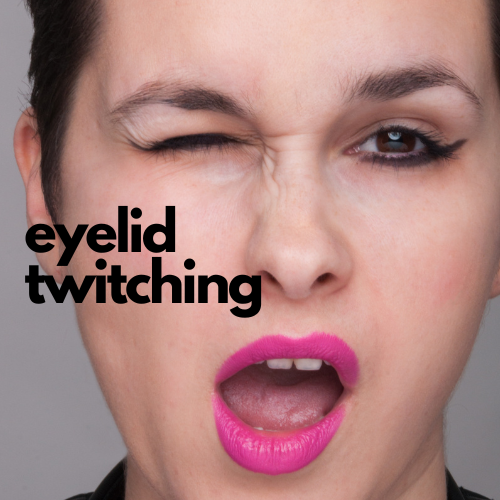Eyelid Twitching


Eyelid twitching can be benign or be related to a more serious health issues. There are some causes for concerns.
Eyelid twitching is a muscle spasm or contraction and it is extremely common. It can happen to the upper or the lower eyelid, but it usually only happens to one eye at a time.
Bouts of eyelid twitching, which usually last a few seconds, can continue for a few minutes at a time. These episodes of twitching can last for several days and then go away and return weeks or months later or it can be a one-time occurrence.
Most of the time bouts of intermittent eyelid twitching is nothing to cause concern and the twitching usually clears up on its own. It is simply an annoying, but benign condition.
Some of the causes of benign eyelid twitching are:
- Fatigue
- Stress
- Medications
- Alcohol or caffeine
- Physical exertion
- Allergies
- Eye strain
Preventing eyelid twitching
Try changing some of the things that are known to commonly cause eyelid twitching, such as getting more sleep, eliminating alcohol or caffeine, finding ways to alleviate stress such as exercise or relaxation techniques.
Eye twitching can be a side effect of drugs such as calcium channel blockers, serotonin reuptake inhibitors, and dopaminergic drugs used to treat Parkinson’s disease.
Sometimes eyelid twitching can be a sign that you need to upgrade your glasses because the twitching is caused by eye strain.
When eyelid twitching is a cause for concern
If the eyelid twitching and spasms do not subside and instead become chronic it may mean you have a condition called benign essential blepharospasm. This condition can begin with dry eyes and frequent blinking, along with eye irritation that is made worse by wind, sunlight, and air pollutants. The symptoms can begin in one eye but will eventually affect both eyes.
The condition can also lead to muscle spasms in other areas of the face. It can be treated with Botox injections that temporarily reduce the spasms. In severe cases, surgery to remove some of the affected muscles may be necessary.
Eye twitching can be a sign of a serious medical condition
On rare occasions, eye twitching can be a symptom of a serious disorder that affects the brain or nervous system such as Bell’s palsy, multiple sclerosis, Tourette syndrome, or Parkinson’s disease.
When to contact your doctor
If you are having chronic eyelid twitching along with the following symptoms, see your doctor for an evaluation:
- Twitching that continues for more than a few weeks
- Twitching that spreads to other areas of the face
- A drooping upper eyelid
- Red, irritated or swollen eyes
- Discharge coming from the eye
- Difficulty opening the eyelid after an eyelid spasm
- Spasms that cause the eyelid to close completely
Gregory Scimeca, M.D.
Ophthalmologist and Medical Director
The Eye Professionals
Our Locations
